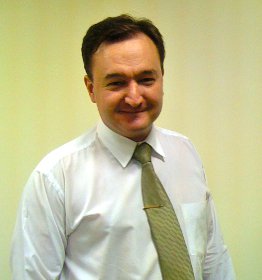By Terance Walsh
Impunity Watch Reporter, Europe
MOSCOW, Russia — Russian President Vladimir Putin has articulated his intentions to fight any sanctions imposed by the United States in response to the cover-up of Sergei Magnitsky’s death.
In an executive order dated May 7, 2012 Putin said, “Hereby I instruct to carry out active work to prevent the introduction of unilateral extraterritorial sanctions by the USA against Russian legal entities and individuals.”
Putin’s remarks are the first official statements that explicitly mark an intention to fight international opposition to Russia’s handling of the Magnitsky case. His strong opposition to sanctions comes shortly after the U.S. House of Representatives introduced the Sergei Magnitsky Rule of Law Accountability Act of 2012. The act’s aim is to impose sanctions on countries that commit gross human rights violations.
Magnitsky was a Russian lawyer who worked for Hermitage Capital and died in a prison almost a year after he was arrested on tax evasion charges.
Putin’s stance has drawn the ire of those who would like to see justice for Magnitsky. In an official statement a Hermitage Capital representative said, “Putin’s executive order shows clearly that the entire Russian government is now working in the interests of corrupt officials who have committed grave crimes. President Putin is ready to use the full resources of the state to fight sanctions but is not ready to do anything at all to prosecute his own corrupt officials who stole $230 million and who then tortured the whistle-blower Sergei Magnitsky who discovered the theft.”
Additionally, Putin’s statements come just ahead of a meeting of the Parliamentary Assembly of the Council of Europe (PACE) scheduled for the end of May. At the meeting, the motion to impose sanctions against Russia over the Magnitsky case will be discussed.
The European Parliament is also become increasingly vocal about Russia’s violations. For example Tim Verhofstadt, the European Parliament’s Liberals and Democrats leader said, “So far our policy of polite appeasement has not worked. Russia needs access and respectability in the outside world more than the outside world needs Russian gas or raw materials… The adoption of similar laws on both sides of the Atlantic to block visas and freeze the assets of those Russian officials, and their immediate families, involved or complicit in the murder of Sergei Magnitsky, the lawyer who died in jail after alleging widespread tax fraud by officials, would have a sobering effect.”
For more information please see:
Law and Order in Russia — Putin Declares Fighting Magnitsky Sanctions One of His Top Foreign Policy Goals — 16 May 2012
Trustlaw — Putin’s Effort to Block U.S. Sanctions Serves Corrupt Officials – Hermitage Capital — 16 May 2012


